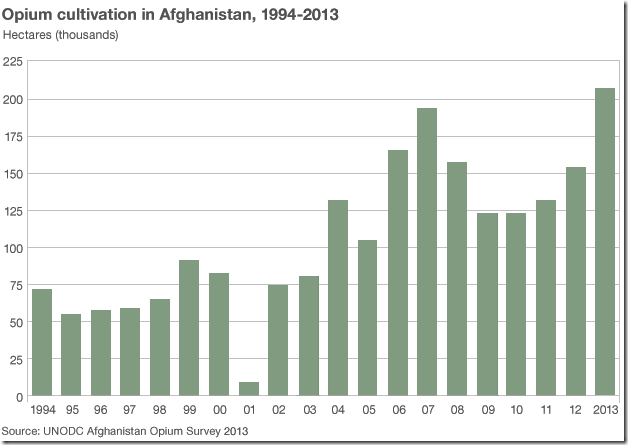BBC
November 14, 2013

Afghan opium cultivation has reached a record level, with more than 200,000 hectares planted with the poppy for the first time, the United Nations says.
The UNODC report said the harvest was 36% up on last year, and if fully realised would outstrip global demand.
Most of the rise was in Helmand province, where British troops are preparing to withdraw.
One of the main reasons the UK sent troops to Helmand was to cut opium production.
The head of the UN office for Drugs and Crime (UNODC) in Kabul, Jean-Luc Lemahieu, said that production was likely to rise again next year, amid uncertainty over the withdrawal of most foreign troops and the presidential election.
He said that the illegal economy was taking over in importance from legitimate business, and that prices remained high since there was a ready availability of cash in Afghanistan because of aid.

“As long as we think that we can have short-term, fast solutions for the counter-narcotics, we are continued to be doomed to fail,” he added.
Mr Lemahieu said there had been some recent successes, including the arrest of leading figures in the drugs industry, but it could take 10-15 years to deal with Afghanistan’s opium crisis, even if policies improved.
The report said the total area planted with poppies rose from 154,000 to 209,000 hectares, while potential production rose by 49% to 5,500 tonnes, more than the current global demand.
Half of the cultivation area is in Helmand province.
